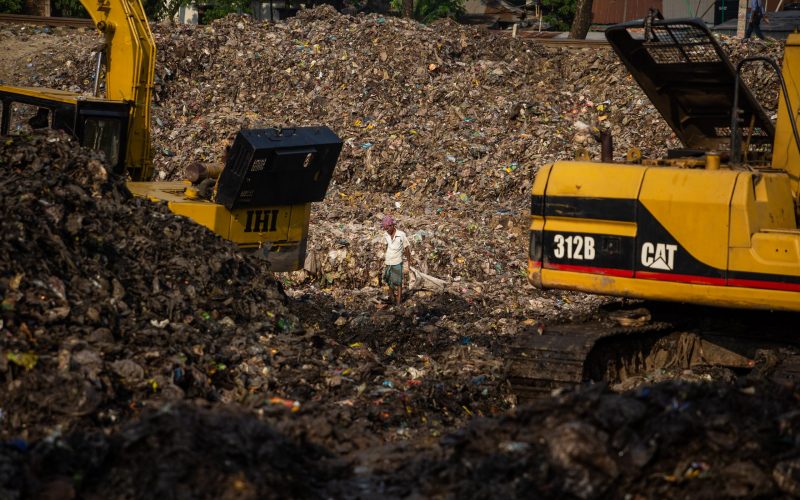
Waste management refers to the collection, transport, recovery, and disposal of waste, including the supervision of such operations and after-care of disposal sites. It concerns itself with the existing amount of waste, trying to minimize the human-waste or environment-waste interface and to minimize potential impact. Waste management should concern itself not only with final disposal of waste but also with the whole cycle of waste creation, transport, storage, treatment, and recovery and does so to minimize pollution. According to the waste management pyramid, the waste management strategies need to be based on prevention measures and measures such as recovery and disposal are secondary.
Waste minimization measures include waste prevention, internal recycling of production waste, and source-oriented improvement of waste quality and reuse of products for the same purpose. Also, external recycling, sorting of waste, reuse for another purpose, and energy recovery are included as waste management measures. Waste management is also viewed as the control of waste-related activities with the aim of protecting human health and the environment and resources conservation.
Each year, Zimbabwe produces 1,7 million tons of solid waste, according to the Environmental Management Agency (EMA). Low levels of waste collection over the past decades have contributed to this figure. Whilst 80% of waste was still collected by local authorities in the mid 1990’s, only 30% of generated waste was collected in 2006. Illegal practices such as open dumping and backyard incineration have led to the current state of affairs.
For citizens without formal educational qualifications, waste picking represents a possible avenue to support themselves. Mlilo, one of said garbage pickers, describes the profession in this way: “It is not the same as being unemployed because whatever small thing you get here is profitable and the benefits depend on how hard someone works”.
CAN Zim is to advocating for the establishment of a sustainable waste management system across the country. The system has to consider circular economy. CAN Zim believe that for recycling to be effective there is a need for a major mindset shift on the part of the waste generator (users of product), the regulator (local authorities) and the producer (manufacturers). Waste generators need to grow more aware of the potential value of waste materials while producers need to create incentives for consumers to adhere to waste regulation policies set and enforced by local authorities.
European countries such as Germany have successfully imposed bottle deposit return schemes which allow product users to earn a partial refund on returned glass or plastic bottles. In Zimbabwe, similar financial incentives are lacking, the financial benefit gained from waste picking not being enough to render recycling universally profitable. An excess in waste production, engendered by exploding population numbers, has equally contributed to a rise in waste dumping as well as waste burning.
CAN Zim intends to nurture a proper waste processing culture in the mindset of local people removing the culture of throwing things away. CAN Zim will work on that until people understand that this is not waste at all but a raw material and something that can be brought back to life.
CAN ZIM is a member of GLOBAL WASTE cleaning network https://gwcnweb.org GWCN is an international non-profit network comprised of NGOs, Educational institutions, and private and public sector companies, that are active and interested in environmental issues related to the management and reduction of waste, whether solid, liquid or gaseous


